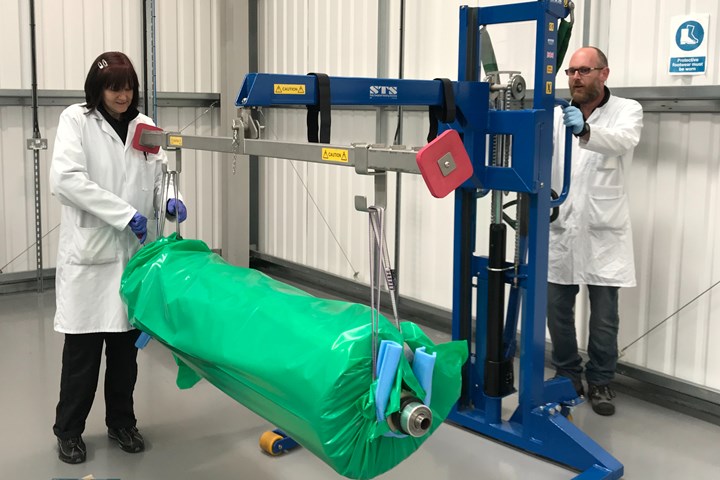Velocity Composites retains Nadcap certification
Velocity retains its certification as a kitting service provider for the aerospace industry for another 18 months, adding to its clean audit history over the last five years.
Velocity Composites (Burnley, U.K.), a composite materials company serving the aerospace sector, has retained its Nadcap certification as a kitting services provider. The accreditation is an endorsement that Velocity’s robust processes and high product integrity meet or exceed the highest standards in the aerospace industry.
The inspection, which took place earlier in the year, is said to have found zero non-conformance findings, and passed with merit status, meaning Velocity retains its certification for another 18 months, rather than the standard 12 months. The accreditation continues the company’s audit history of zero audit findings across both its U.K. sites in Burnley, Lancashire and Fareham, Hampshire over the last five years, according to Velocity Composites.
Nadcap is a global accreditation program for suppliers in the aerospace engineering and related sectors. Administered by the Performance Review Institute (PRI), Nadcap audits aim to ensure that suppliers to major aerospace primes continue to meet the highest quality of compliance to customer requirements and industry standards.
“In any industry it is imperative to hold robust processes and maintain high product integrity by upholding recognized quality and special process standards,” Matthew Archer, commercial and supply chain director at Velocity Composites, says. “We pride ourselves on delivering the highest quality products to the aerospace supply chain and customers and manufacturers can be confident that our standards meet even the strictest criteria.”
Velocity Composites manufactures advanced carbon fiber and ancillary material kits for use in the aerospace and associated industries. The company uses its process knowledge, business processes and proprietary software to reduce the amount of material required by its customers and also reduce the associated material waste when making aircraft parts.

















